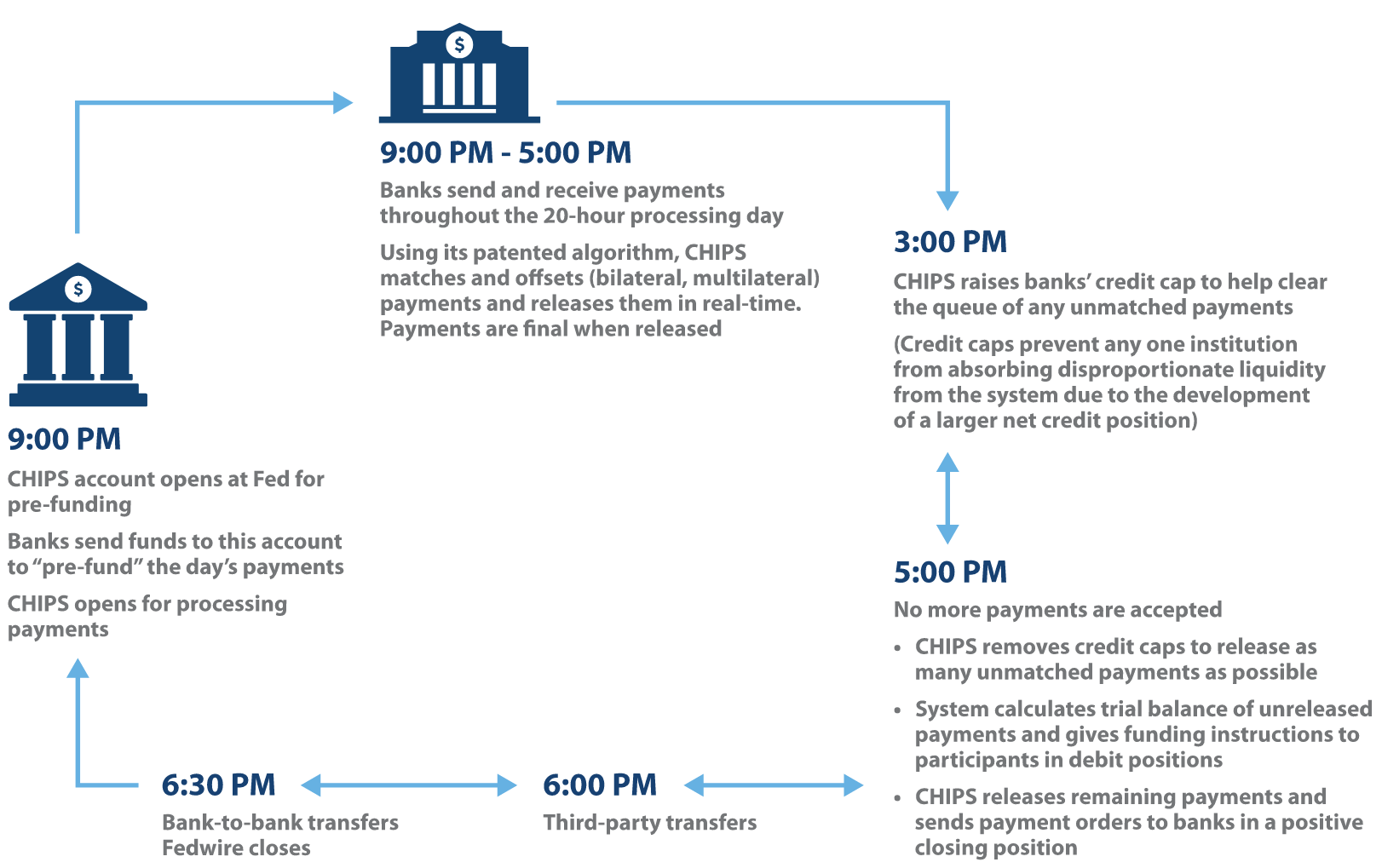Wire
Wire
A wire transfer is an electronic payment service for transferring funds “by wire” through either the CHIPS, FedWire, or SWIFT payment systems.
Overview
- Wires most commonly used for high dollar value - low volume type transactions
- Wires can only be used between banks
- Available only during non-holiday weekdays and during business hours
- Transactions are not reversible
- Cannot be used to request funds
- High sending fees (chase pays $.15 per wire, but charges $25-45 per outgoing wire), $15 to receive..additional fees for non-USD wire, failed wires, etc…
- Fees make it impractical for small transfers, individuals can send up to $100K
- Used in payment clearing & settlement
Fedwire & CHIPS used for large value domestic & international USD payments
CHIPS - Clearing House Interbank Payment System
- Operated by The Clearing House (TCH) - a banking association and payments company that is owned by the largest commercial banks.
- Private sector counterpart to Fedwire
- Note: UK equivalent to Fedwire is called CHAPS and is operated by the Bank of England
- Organized in the 70’s
- Only available to ~50 member banks - by the banks that use it
- Primary clearing house in the US for large banking transactions
- It is a Deferred Net Settlement (DNS) system
- Subject to supervision and examination by the Federal Reserve and other federal bank supervisory agencies
- CHIPS is designated as systemically important by FSOC- under Title VIII of the DFA (Dodd-Frank Act)
- Generally used for large-value interbank funds transfers
- Settles roughly $1.8T every day in domestic & international payments
- Cheapest wire service & therefore the default choice for banks
- Slower but less expensive than Fedwire => is not a real-time system
- Funds are generally settled intraday => so available next day
- Funds are netted against debits & credits across all transactions at the end of the day
- Operating hours are 9AM - 6PM Eastern
Clearing - transfer & confirmation of information between the sending financial institution and the receiving financial institution.
Settlement - the actual transfer of funds between sender & receiver

Fedwire Funds - owned and operated by the Federal Reserve
- Used by US banks, credit unions, government agencies & the federal reserve
- Service users must be account holders at a Federal Reserve Bank - subject to terms and conditions specified in Operating Circular 6 and the PSR policy
- It is a real-time gross settlement (RTGS) system - more expensive than CHIPS, but provides immediate settlement on individual transactions
- Puts more pressure on banks to insure they have sufficient liquidity available to settle
- A credit transfer system - a debit entry is made to an originator’s account and credited to the receiver’s account
- Most widely used wire transfer system in the US => May 2021 => 16 million transfers totalling $75.6 trillion
- System is closed during the weekends & federal holidays => operating hours
- ISO 20022 - Federal Reserve info
- Migrating to ISO 20022 messaging format no earlier than November 2023
SWIFT - International Payments - Society for Worldwide Interbank Financial Telecommunications
- Formed in 1973 & Based in Belgium => Created by a consortium of 239 banks to faciliate cross-border payments
- Today - SWIFT connects more than 11K FI’s across 200+ countries
- Analogous to a simple email system enabling secure messages across it’s members
- Averages 40million messages/day that include orders, payment confirmations, FX exchanges and trades
- Uses standardized MT (message type) messages
- Looking to fully migrate to ISO 20022 by 2025
- Plans to test Tokenization in 2022, with participation from Clearstream, Northern Trust, SETL
- Wires typically take 2-3 days
- cutting off a nation’s banks from swift access restricts flows into and out of that nation => this can result in real economic pain